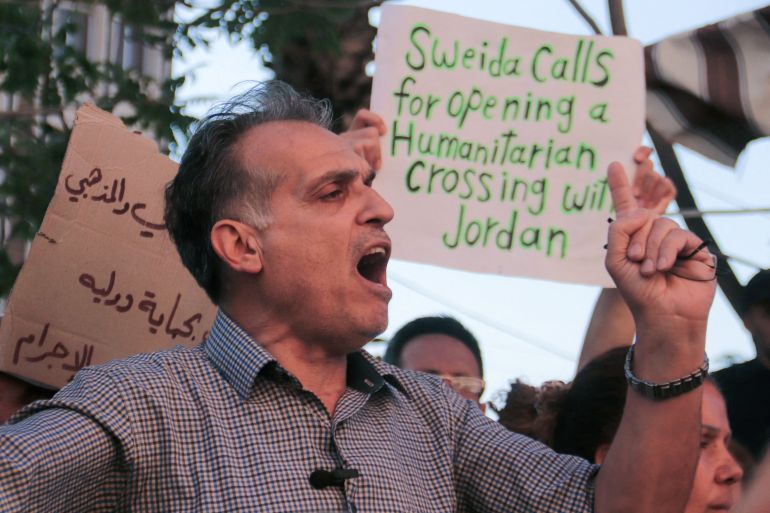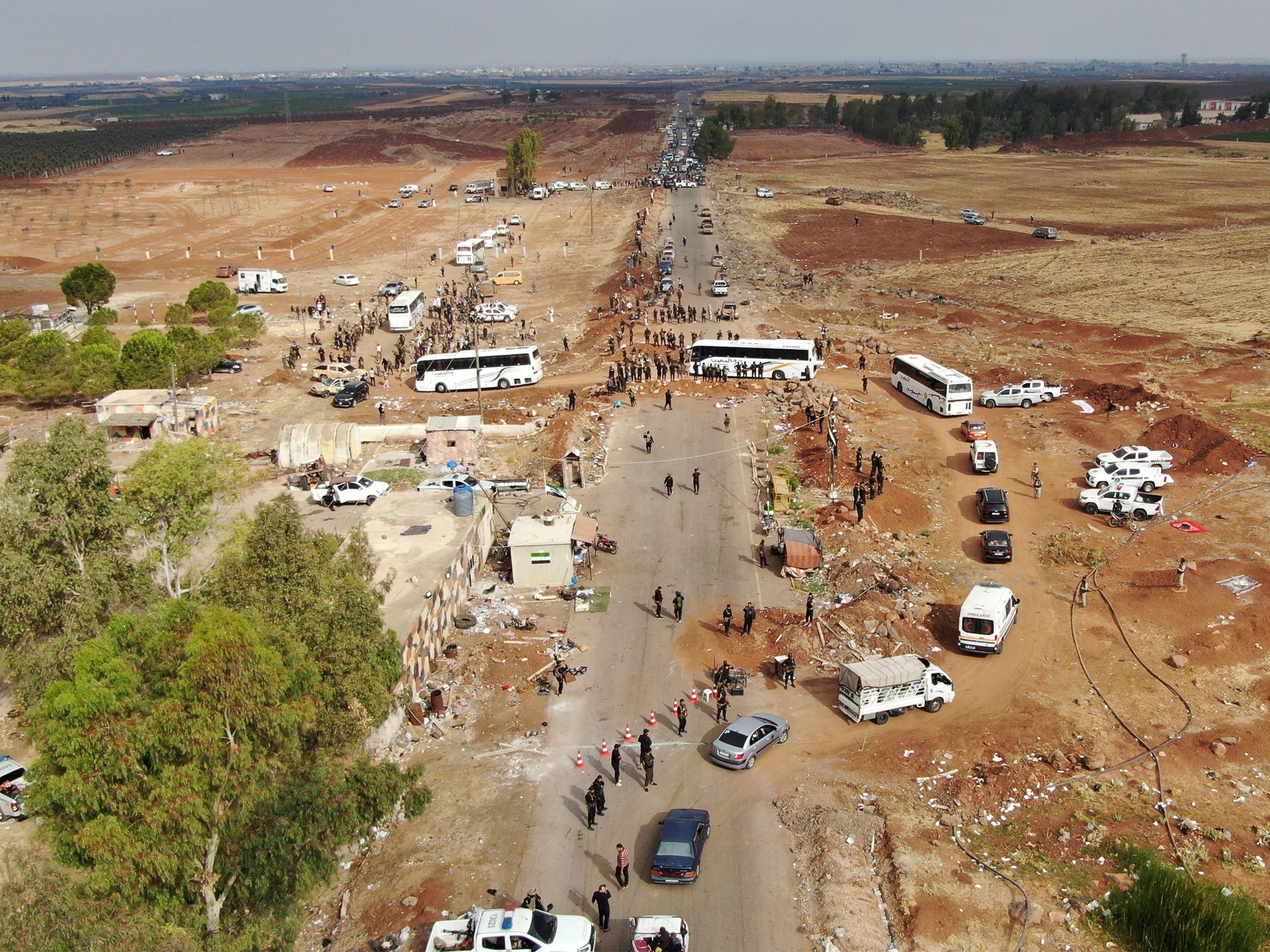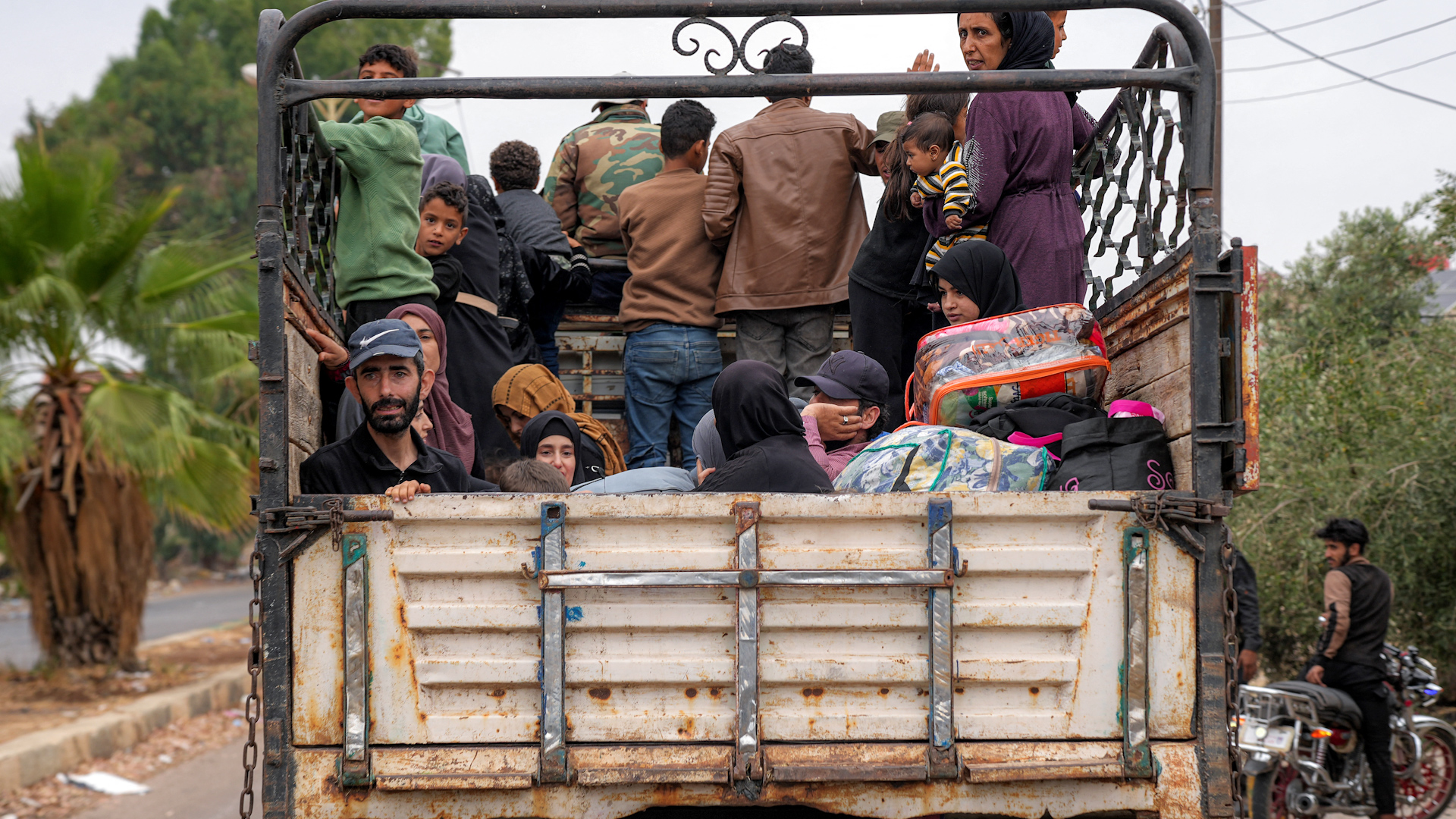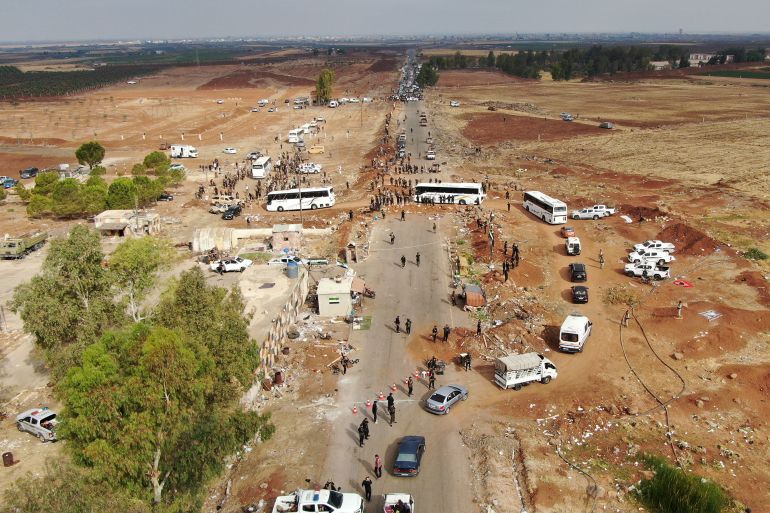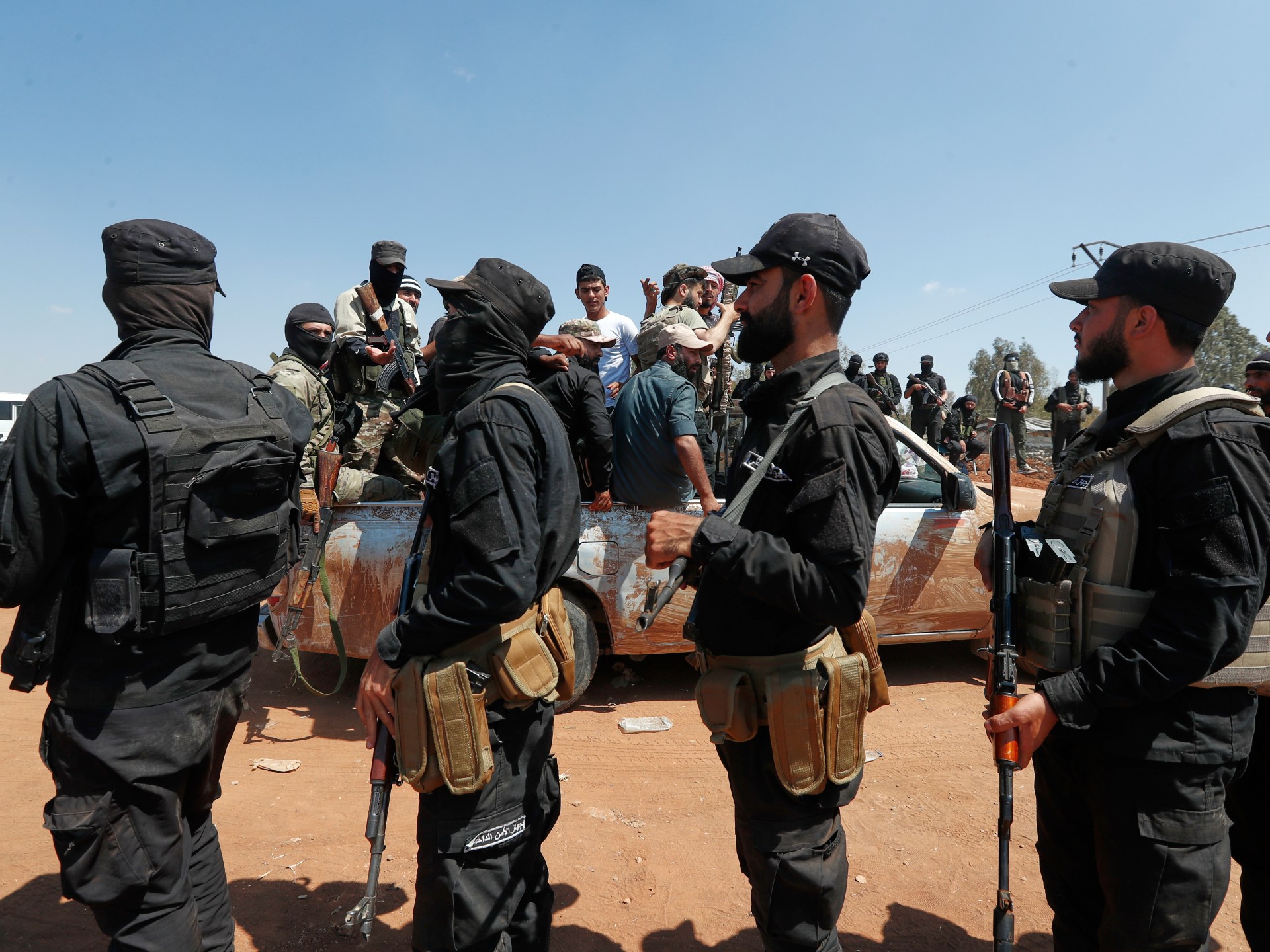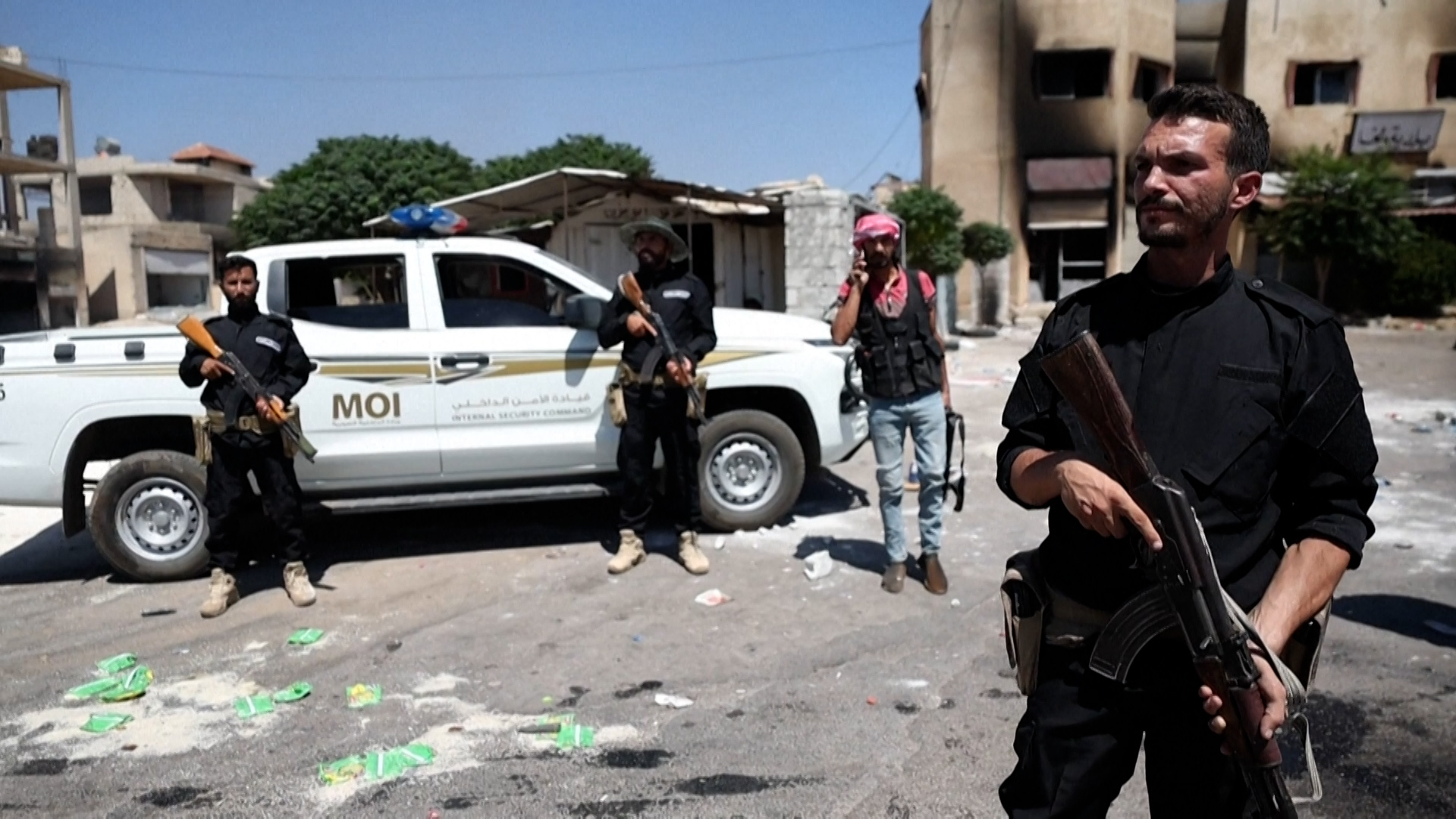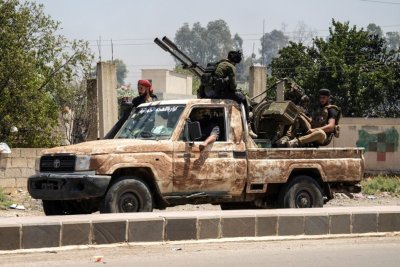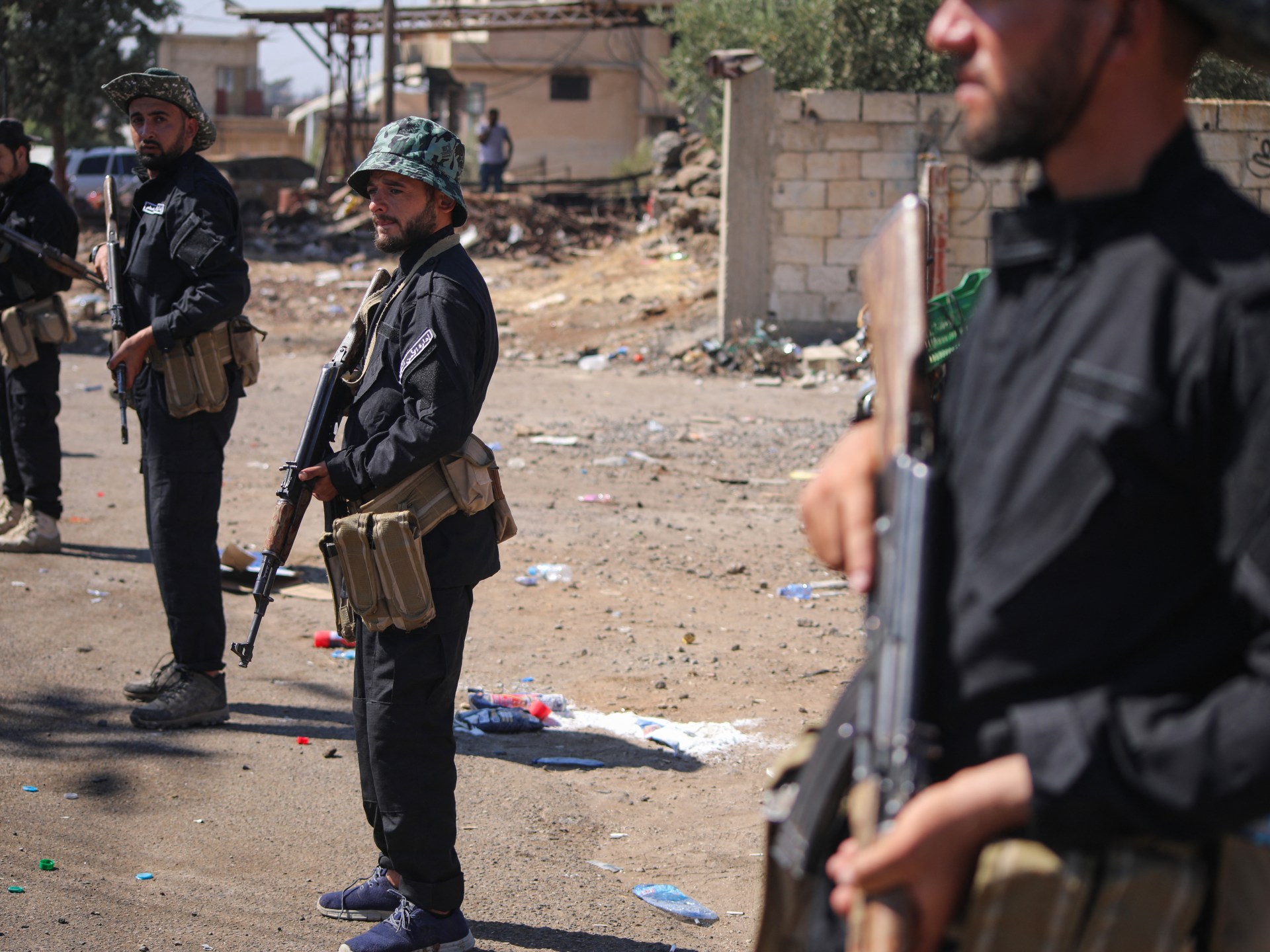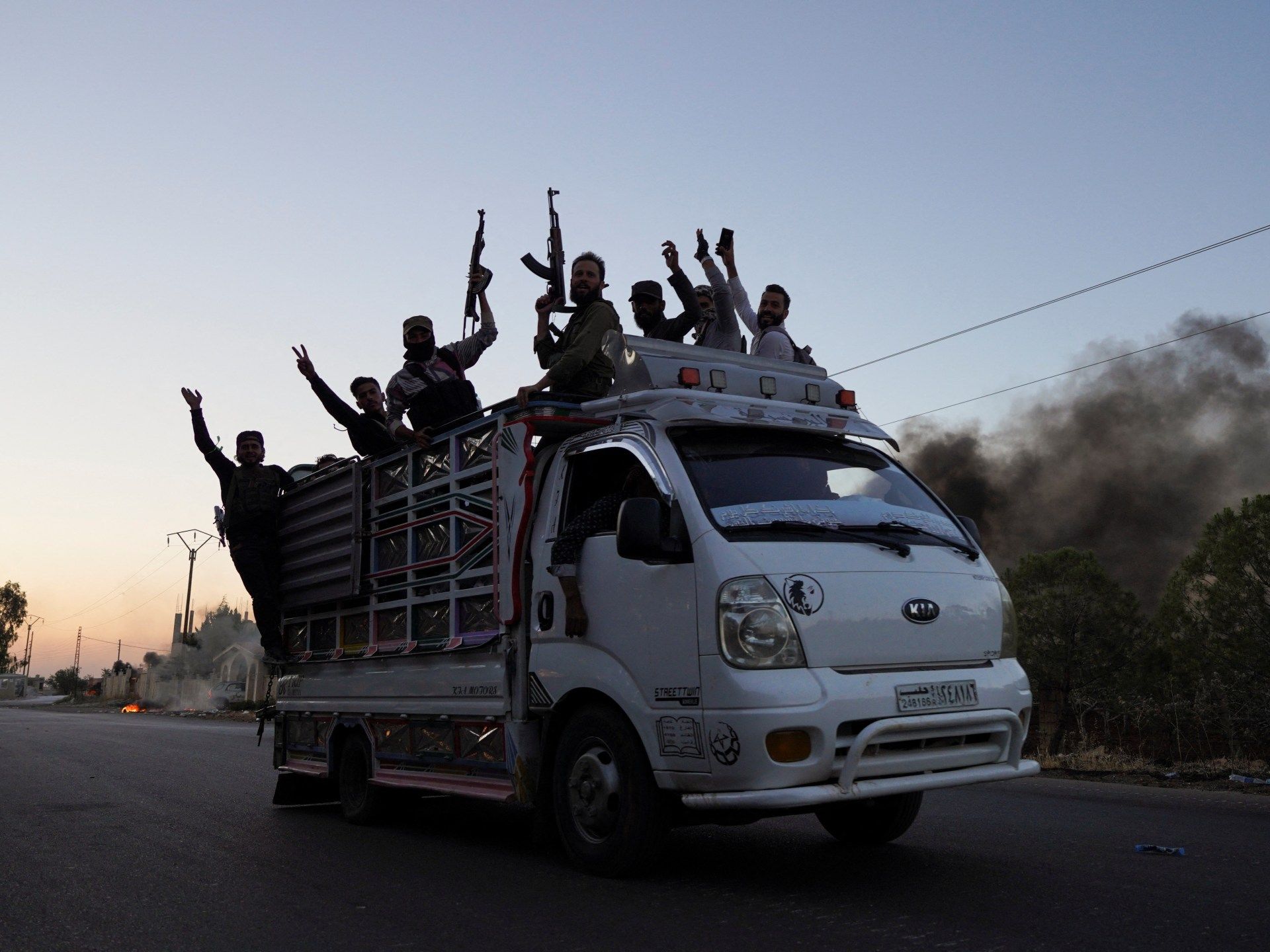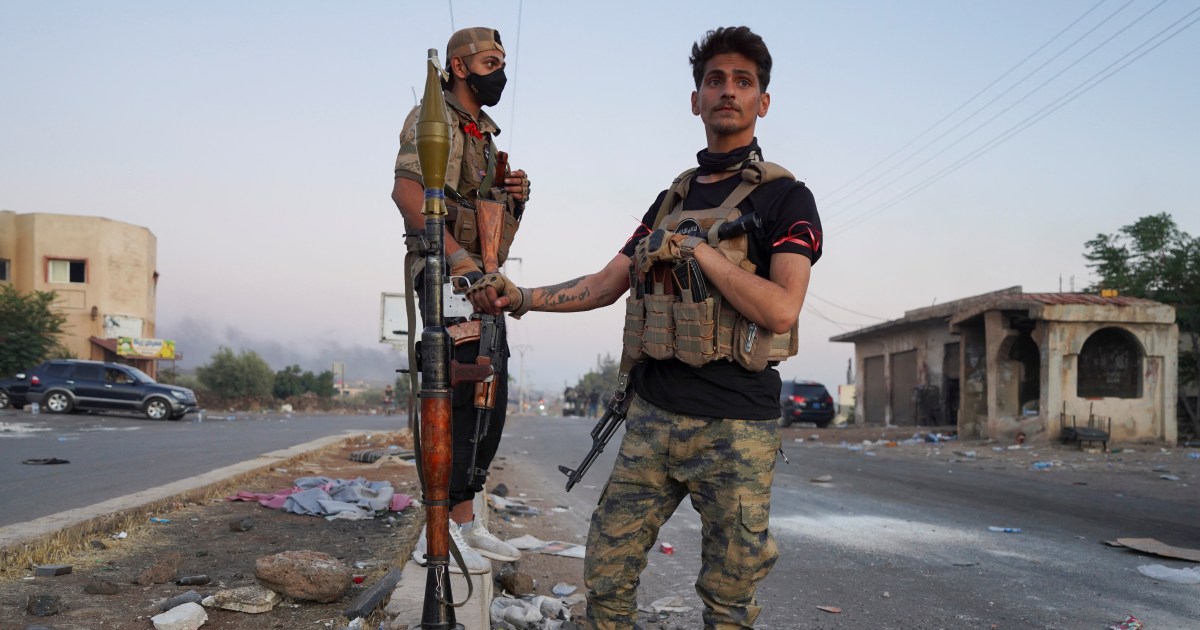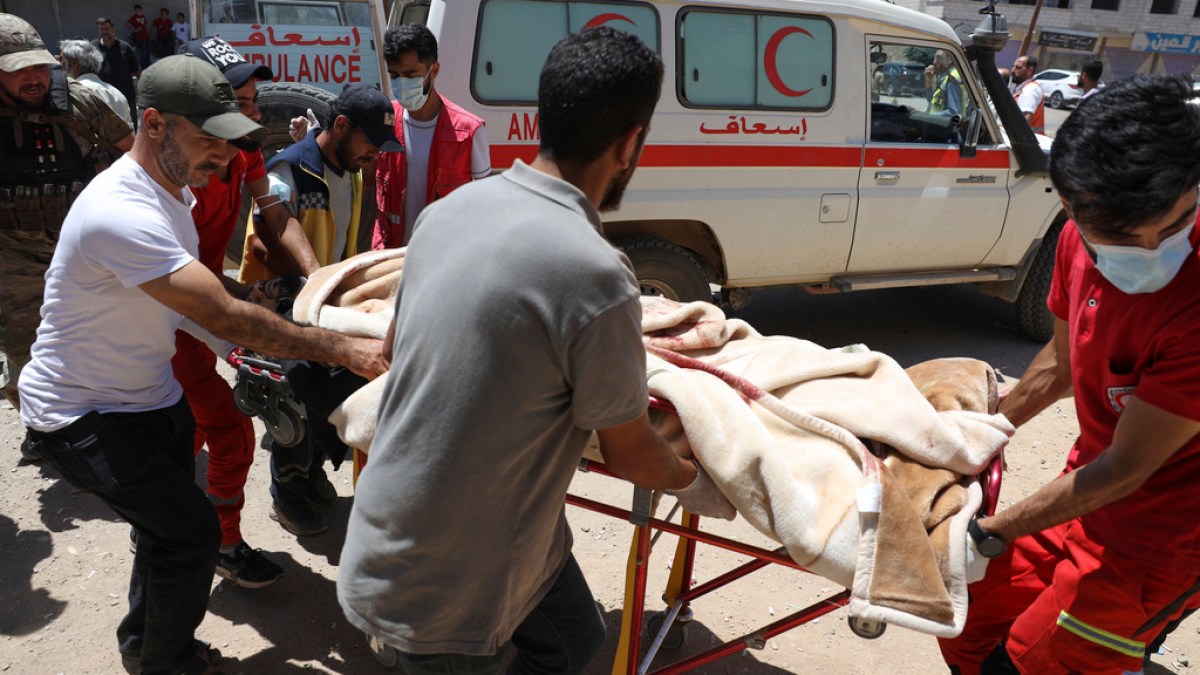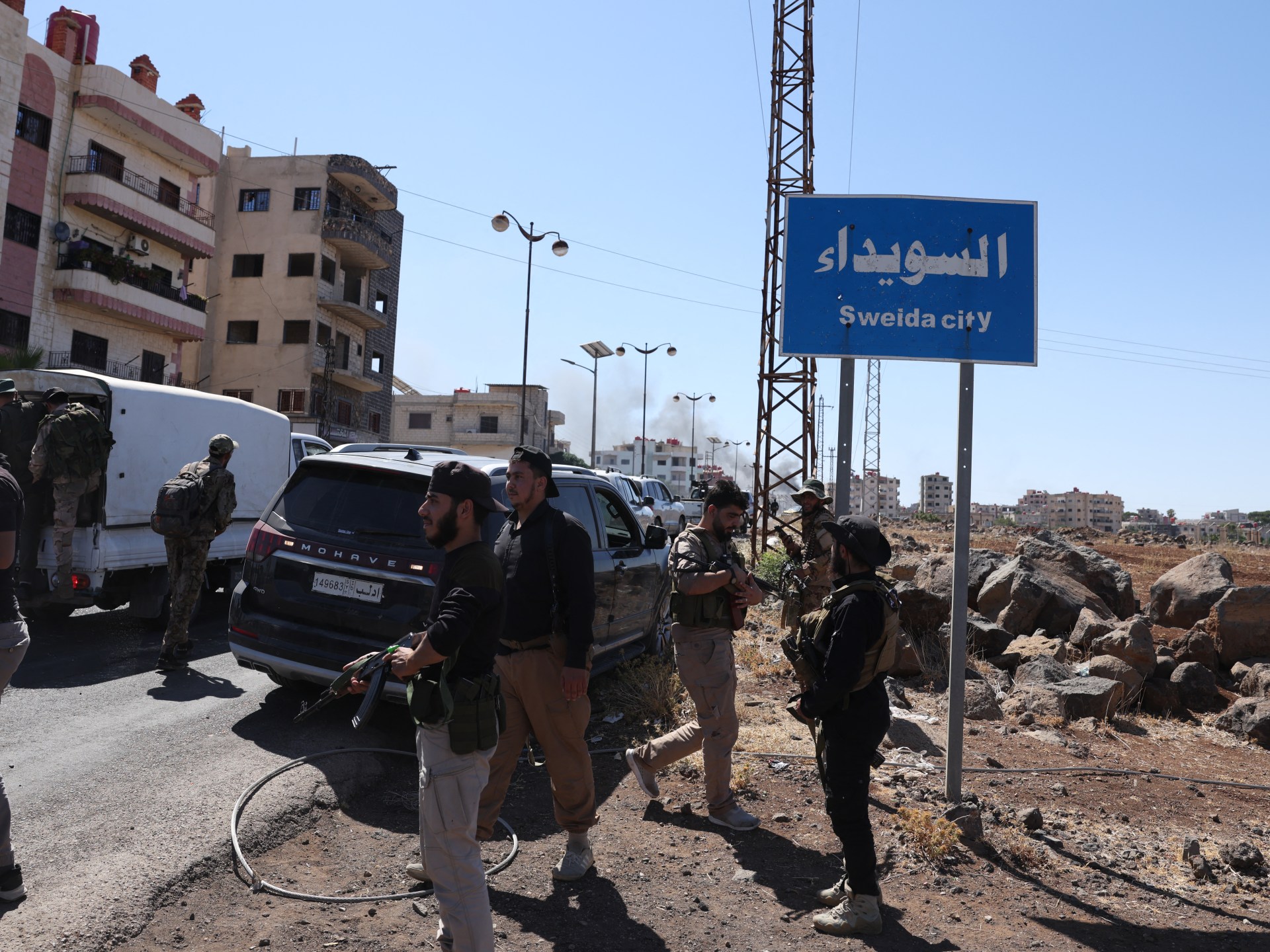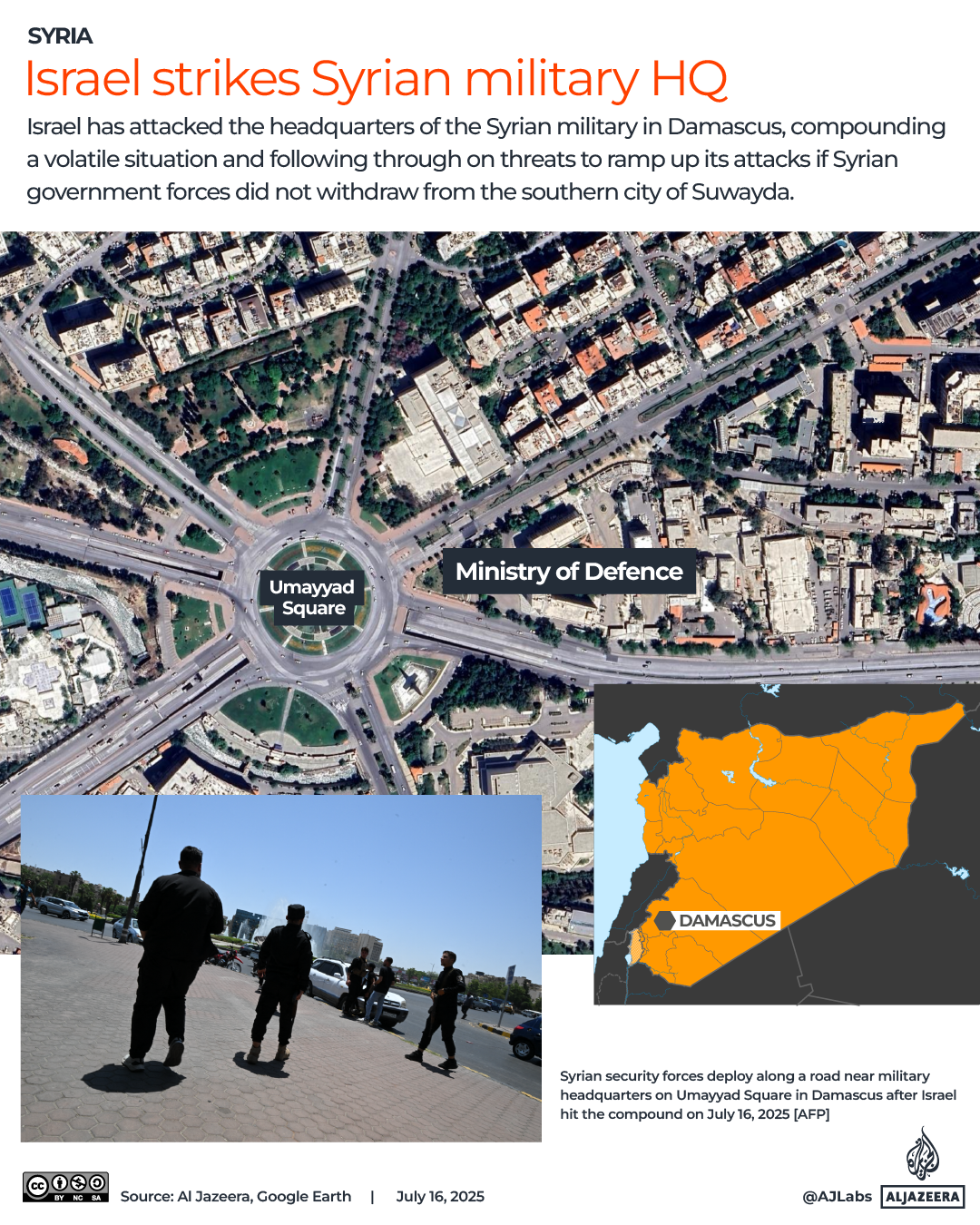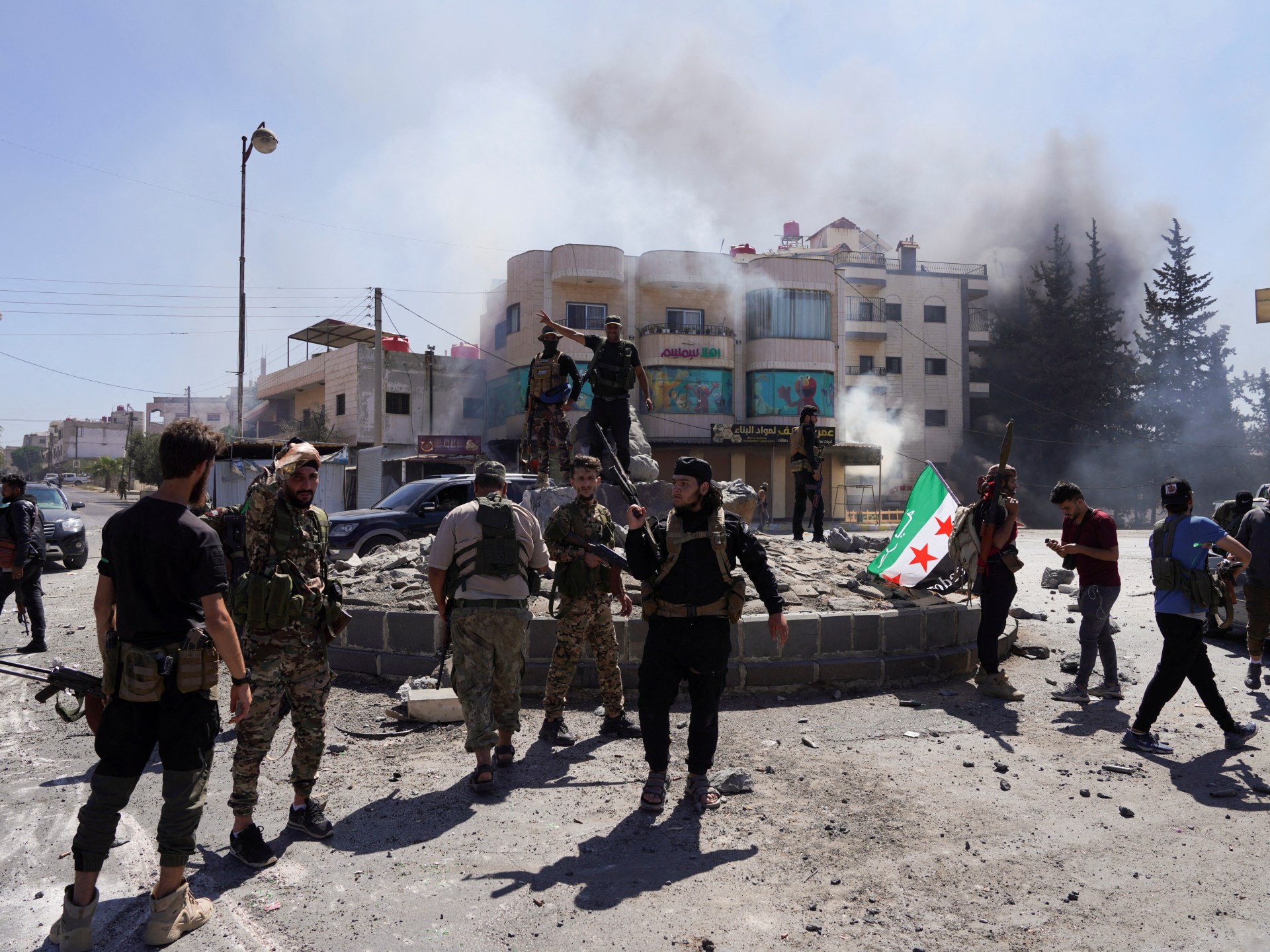Syria, Jordan, US unveil plan to restore security in Suwayda after violence | Conflict News
Syria, Jordan and the United States have announced plans to restore security in Suwayda, where sectarian violence in July claimed the lives of more than 250 people.
“The roadmap for a solution in Suwayda includes holding accountable those who attacked civilians, continuing humanitarian and medical aid, compensating those affected, ensuring the return of displaced persons, restoring basic services, deploying local Interior Ministry forces to protect roads, uncovering the fate of missing persons and returning abductees,” Syrian Foreign Minister Asaad al-Shibani said in a news release on Tuesday after meeting with his Jordanian counterpart Ayman Safadi and US Syria’s envoy Tom Barrack in Damascus.
Al-Shibani also said the government was working on a plan for the return of those displaced by the violence, who number more than 160,000, according to UN figures. He did not give details on how these steps would be achieved.
The new plan includes proposals to launch an internal reconciliation process. Violence erupted on July 13 between Bedouin tribal fighters and Druze factions in the southern Syrian province.
Safadi, for his part, said the parties agreed on a Syrian-Jordanian-American plan “to overcome the events in Suwayda under the framework of Syria’s unity and stability.”
“We want Syria to stabilise, recover and rebuild after years of destruction and suffering, and to start practical steps toward a brighter future for all Syrians,” he added.
Jordan borders Suwayda province and has spent years fighting drug and weapons smuggling from its northern neighbour.
Sectarian violence
The fighting broke out in July following the abduction of a Druze truck driver on a public highway, and later drew in Bedouin tribal fighters from other parts of the country. A ceasefire was established after a week of violence in the Druze-majority province.
The government forces were deployed to restore order, but were accused of siding with the Bedouins.
Israel launched dozens of air attacks on convoys of government forces in Suwayda and even struck the Syrian Ministry of Defence headquarters in the capital Damascus. Israel has pledged to protect Syria’s Druze minority, which it sees as potential allies.
Israeli Prime Minister Benjamin Netanyahu said in August that his country was engaged in talks to establish a demilitarised zone in southern Syria.
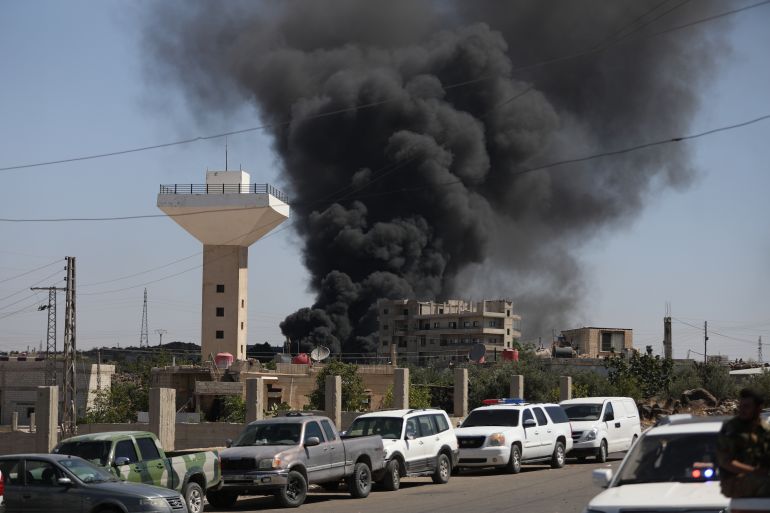
Syria said it held Israel “fully responsible” for the unrest.
After opposition fighters toppled Syrian President Bashar al-Assad in December, Israel deployed troops to the buffer zone on the Golan Heights. Israel still occupies the Golan Heights, recognised as Syrian territory.
Israel has also repeatedly bombed Syria since al-Assad’s fall.
Meanwhile, Syria’s Foreign Ministry said on Tuesday that Damascus and Washington were working to reach security understandings with Israel as part of a plan for stability announced earlier in the day with US and Jordanian support for violence-hit Suwayda province.
“The United States, in consultation with the Syrian government, will work to reach security understandings with Israel concerning southern Syria that address the legitimate security concerns of both Syria and Israel while emphasising Syria’s sovereignty and territorial integrity,” the Foreign Ministry said in a statement outlining the roadmap.
Confidence-building
No concrete steps were released Tuesday for how the goals discussed between Jordan, Syria and the US would be accomplished.
“Suwayda belongs to all its components, and it is the state’s duty to restore trust among them, return the displaced, and there is a determination to restore normal life to the governorate,” al-Shibani said in the news release on Tuesday.
Jordan’s Foreign Minister Safadi said Syria’s security is an extension of Jordan’s security, adding that “all Syrians are equal citizens in rights and duties within their state”.
He stressed the need to hold perpetrators of human rights violations accountable and deliver humanitarian assistance.
The US envoy Barrack said he came to Syria “as a representative of the president of the United States and the secretary of state in a difficult moment in the region and the world.”
Barrack said confidence-building “takes inches, centimetres and decades to build and can be lost in an instant.”
“We are going to hit speed bumps or we are going to have bus stops along the way,” he added.
Tuesday’s discussions build on earlier rounds hosted by Amman in July and August that focused on consolidating a ceasefire in Suwayda and finding a resolution to the conflict there. Suwayda has observed a ceasefire since July 19.


